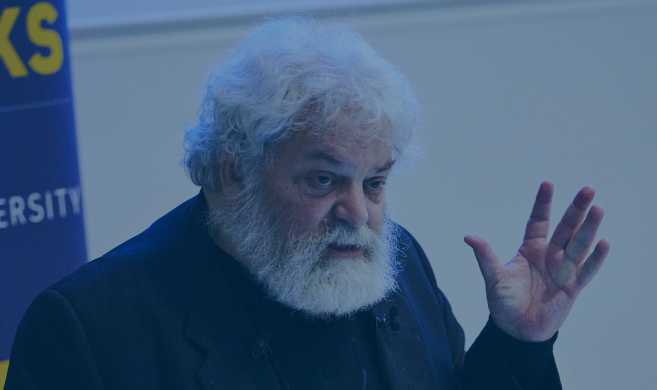You’re arguably best known for your 1984 book: Strategic Management: A Stakeholder Approach in which you trace the origins of the ‘stakeholder vs the shareholder’ notion. You also suggest that businesses should build their strategy around their relationships with key stakeholders. Exactly 40 years later, the world has changed. How have your proposals evolved to match it?
I had a chance to reread my book recently and I found that, while I might say some of the things differently today, I still believe in most of the underlying principles. In fact, I think the world has come around to these values. Businesses today know that they have stakeholders, they know that they have to pay attention to customers, suppliers, employees, communities and financiers, people with money. They may even have to pay attention to other players like the government, NGOs, and interest groups. To be frank, I think businesses have always done this. Now, they have to figure out how to deal with their stakeholders. The importance of the stakeholder theory is to say, hey, wait, there are other people you have to deal with, who are important to the value creation notion.
The importance of the stakeholder theory is to say, hey, wait, there are other people you have to deal with, who are important to the value creation notion.
But I think a more important insight is that stakeholders are interdependent. How you deal with customers determines how you can deal with suppliers, employees, communities and financiers. How you deal with employees determines how you deal with the others. So, their interests are interconnected. And it's that interconnectedness that people haven't seen. Now, we must try to figure out as a business school how students, alumni and businesses that hire them connect with each other. If you can do that, you can build a great school or business. It's the interconnectedness that's the most central idea here. And I think the world's coming around to that idea. Maybe I'm just a hopeless optimist, you know, but that's where I'm going to leave it.
Ed, you’re an economist with a doctorate in philosophy and a degree in maths. How does the mix of humanities and hard science influence your approach to business ethics?
Well, I'm a philosophical pragmatist, so I don't see a lot of sense in making hard and fast distinctions between disciplines. One of my mentors, Richard Rorty, said discipline is just a bunch of people that read the same books. I think that's probably right. I want to read books that help me solve whatever problems I'm working on. I don't care if it's a book about biological evolution, about Freud and his followers, or a book about quantum theory, right? I think in an applied area like business we ought to draw from the whole of human experience not from one or the other.
We desperately need to train people in business to be more creative.
We desperately need to train people in business to be more creative. Look, AI is going to do everything else. So all we have left is our creative imagination. It will help us know what our values are. That's what we learned from Freud who told us that we aren't always the best judge of what our values are. The French philosophers Jean-Paul Sartre and Simone de Beauvoir talked about self-deception and bad faith. These are real things for human beings. You won't find much reference to them in business literature. And you certainly won't find Freud mentioned very often. Yet, all three wrote foundational text with the kind of insights that are really helpful.
HEC has also embarked on major reforms of its curriculum, enriching it with courses incorporating ethics and social sciences. Its Sustainability & Organizations Institute is interdisciplinary and has put ethics and well-being at the heart of its research and teaching. Is that the way to go for a business school?
Well, I think that's part of it - as long as you don't listen too much to the philosophers who are ethicists, because again, that can narrow it down. The most interesting part of ethics is framing. Once you frame the problem, you can allow others to decide whether it's good, bad, right or wrong. So, we have to think broadly about ethics as well. I defy you to find a book on ethics and political theory that has anything to say about business. For the most part, they all start with the question in political philosophy, of how the state sets up its policies. They’ll never say: “Wait, we've been value creators and traders long before there were states.” And so how is it possible that value creation and trade can happen without states? And the answer is pretty straightforward: for the most part, people kept their promises and told the truth, and it worked just fine and solved each other's problems. We need ethics that take business into account and we don't really have that yet. I think the closest we've got is the pragmatist view. But there are as many pragmatist views as there are pragmatists. So that's also a problem.






